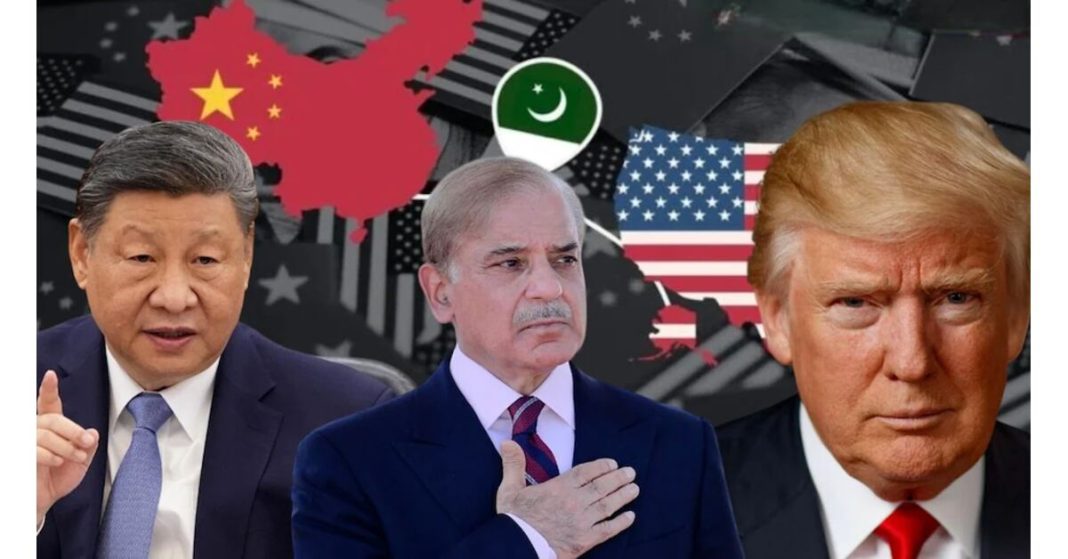The Chinese foreign ministry, in its latest statement, says that Pakistan authorities have given China assurances that its business dealings with the United States (US) will not harm its interests in the region. On October 13, Chinese foreign ministry spokesman Lin Jian was asked two questions related to Pakistan.
The first question was whether China’s position was on the border clashes between Pakistan and Afghanistan. It should be noted that on Saturday night, clashes broke out on the Pakistan-Afghanistan border in which, according to the Pakistan Army, 23 Pakistanis, including its security personnel, were killed.
In response to the second question asked of the Chinese foreign ministry, related to the increasing cooperation between Pakistan and the United States in the rare earth mineral sector. Last month, Feudal Marshal Asim Munir and Prime Minister Shahbaz Sharif visited U.S. General Trump at the White House and presented the indigenous precious stones of Pakistan.
In September, two major Pakistani and American companies signed agreements for cooperation in the minerals and logistics sectors. According to the statement issued by the Prime Minister’s Office of Pakistan, these companies will initially invest about $500 million in the minerals sector of Pakistan.
Beijing’s official newspaper, Global Times, asked Chinese foreign ministry spokesman Lin Jian whether Chinese equipment and technology were allegedly used to export rare earth minerals to the United States by Pakistan, and if this is the reason that China has recently increased restrictions on the rare earth mineral exports. Chinese foreign ministry spokesperson responding to this question said, “Pakistan and China have discussed cooperation in the mineral sector between Pakistan and China.
Pakistani authorities have stressed that increasing business ties with the United States will not harm Chinese interests in cooperation with China in this region.
He added that “the mineral samples that Pakistani leaders presented to their American counterparts as gifts are raw samples of precious stones that were purchased by the staff.
He denied reports claiming that China has tightened restrictions on rare earth exports because of Pakistan. He said that these measures have nothing to do with Pakistan but are aimed at global peace and stability and non-proliferation responsibilities.
The statements from the Chinese come against the backdrop of Pakistan offering the USA a new seaport on the Arabian Sea at Pasni in proximity to Gwadar, where China is operating. The plan envisages American investors building and operating a terminal to access Pakistan’s critical minerals in the town of Pasni, according to the Financial Times.
Pasni is a port town located in Gwadar district, Balochistan, which borders Afghanistan and Iran. The move comes after Pakistan’s Army Chief Field Marshal Syed Asim Munir, along with Pakistan’s Prime Minister Shahbaz Sharif, held a meeting with US President Donald Trump at the White House in September.
Read more: Pakistan offers US new Arabian Sea Port near China’s strategic Gwadar hub
In that meeting, Sharif sought investments from US companies in the agricultural, technology, mining, and energy sectors. The blueprint excludes the use of the port for US military bases and instead aims to attract development finance for a rail network linking the port to mineral-rich western provinces. The seaport on the Arabian Sea will allow America to operate in Balochistan.
Last week, China tightened restrictions on the export of rare earth minerals used in advanced technology manufacturing after Trump had threatened to impose an additional 100% tariff on China, which Beijing called a double standard.
China is estimated to process about 90% of the world’s rare earth minerals, which are used in everything from smartphones to solar panels. Beijing had already imposed strict restrictions on the processing of this technology, even banning foreign corporations, but on Thursday, the country formally set out rules.
Foreign companies will now need permission from the Chinese government to export even small quantities of rare earth minerals, and will have to explain the purpose of their use. Beijing defends the restrictions as a strategy of protecting national security. Analysts believe the main target appears to be defense manufacturers abroad, including the United States, that rely on rare earths from China.
The Chinese Ministry of Commerce has also imposed restrictions on the export of lithium batteries and some types of graphite, which are essential components of the global supply chain, but are mostly produced in China.
With Additional Inputs from GVS South Asia Desk














